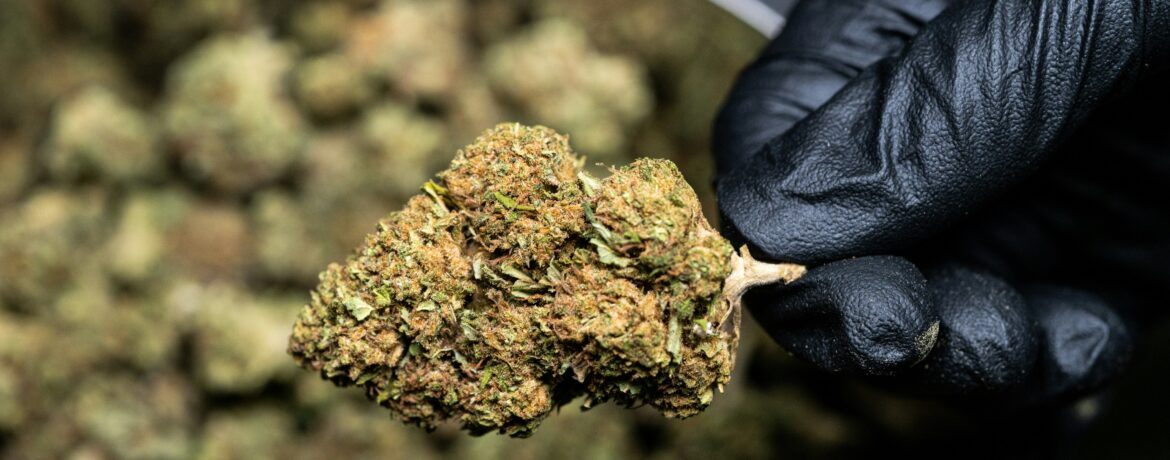Acknowledging THCA
THCA is a non-psychoactive forerunner to THC (tetrahydrocannabinol), the compound responsible for the joyous outcomes normally connected to marijuana. Unlike THC, THCA does not create intoxication when consumed in its raw kind. Rather, it provides a range of possible healing advantages, including anti-inflammatory, neuroprotective, and anti-emetic homes.
The Surge of THCA Flowers
Commonly, marijuana intake has concentrated on THC-rich stress for recreation and medical features. Nonetheless, the current studies right into the healing opportunity of thca flowers have sparked an enthusiasm for expanding marijuana ranges, especially reproduced, to make the most of THCA web content. These pressures, frequently referred to as THCA flowers, are carefully cultivated to maintain the stability of the THCA particle through specialized expanding methods.
Genetics
The structure of growing premium THCA flowers depends upon choosing the best genetics. Various marijuana pressures show differing levels of THCA production, with some being genetically inclined to generate a higher focus on this cannabinoid. Farmers often choose stress recognized for their high THCA material, such as Wedding Event Occasion Cake, Mimosa, or Purple Strike. Additionally, selecting constant genes with more effective characteristics, such as condition resistance, arduous development, and perfect growing times, can be included in effective farming.
Ecological Problems
Creating an excellent growing setup is vital for fully exploiting THCA production. Marijuana plants thrive thoroughly problems, including temperature level, moisture, light, and airflow. Interior farming gives farmers precise control over these ecological facets, ensuring constant and top-quality flower manufacturing. Keeping temperatures between 70-85 ° F( 21-29 ° C) throughout the day and a little reduced during the evening, together with relative moisture levels of 40-60%, fosters healthy, balanced plant development and THCA development.
The Endocannabinoid System
To recognize the role of THCA flowers in integrative medical care, it’s essential to understand the endocannabinoid system (ECS). The ECS is a challenging network of receptors, enzymes, and endocannabinoids discovered throughout the body. It regulates numerous physical procedures, such as pain experience, mood, cravings, and immune attributes. Both THC and THCA connect with the ECS, albeit with various systems, affecting its job and possibly contributing to recovery results.
Potential Benefits of THCA Flowers
The research study suggests that THCA might supply many wellness advantages, making it a motivating candidate for integrative healthcare methods. Some prospective benefits of THCA flowers include:
Anti-Inflammatory Characteristics: THCA shows powerful anti-inflammatory properties, which could be advantageous in handling problems determined by swelling, such as joint swelling and inflammatory bowel conditions.
Neuroprotective Impacts: THCA reveals assurance in protecting neurons from damage, possibly supplying corrective advantages in neurodegenerative ailments like Alzheimer’s and Parkinson’s.
Anti-Nausea and Hunger Excitement: THCA aids in reducing nausea or vomiting and advertises cravings, making it valuable for individuals undergoing radiation treatment or managing craving loss due to other scientific problems.
Discomfort Monitoring: A preliminary research study recommends that THCA might have analgesic properties, offering remedies for discomfort connected with numerous issues, including neuropathy and persistent pain disorders.
Applications in Integrative Treatment Practices
Integrative healthcare experts progressively include THCA flowers in their treatments, recognizing their perspective to enhance conventional therapies and advertise all-natural health. Some methods in which THCA flowers are being utilized in integrative healthcare include:
Pain Management: THCA blooms could be utilized as part of a complete discomfort monitoring plan, either alone or with different other treatments, to help decrease discomfort and boost the way of life for patients with relentless discomfort problems.
Anti-Inflammatory Treatment: An integrative physician might recommend THCA flowers as an all-natural anti-inflammatory solution for problems such as joint inflammation, fibromyalgia, and autoimmune problems, assisting in reducing inflammation and relevant signs and symptoms.
Encouraging Treatment in Cancer Cells Therapy: THCA flowers might play an encouraging duty in cancer care by reducing chemotherapy-induced nausea or vomiting and advertising appetite, thus enhancing clients’ overall convenience and dietary consumption during treatment.
State of mind Regulation: Some people might gain from the mood-regulating results of THCA, specifically those battling with nervousness, clinical depression, or state-of-mind conditions. Integrative strategies that incorporate THCA flowers, therapy, and numerous other interventions may provide detailed support for mental health.
Considerations and Precautions
While THCA flowers hold a pledge as a therapeutic agent in integrative treatment techniques, they have to be utilized with care and awareness. Below are some considerations and precautions to keep in mind:
Legal and Regulative Variables To Consider: The lawful standing of cannabis and cannabis-derived products, consisting of THCA blooms, differs by area. Individuals and healthcare providers must familiarize themselves with appropriate guidelines and policies for managing their use.
Quality and Pureness: Guaranteeing the high quality and purity of THCA flowers is critical. People should look for items from respectable resources that adhere to rigorous quality control standards and take on third-party screening for strength and pollutants.
Dosage and Management: Finding the optimal dose and administration technique for THCA blooms requires careful consideration of individual components such as age, weight, medical history, and level of sensitivity to cannabinoids. Consulting with an enlightened physician is recommended to create a customized treatment strategy.
Prospective Drug Interactions: THCA may contact certain medicines, especially those metabolized by the liver enzymes CYP2C9 and CYP3A4. Individuals should reveal their marijuana use to physicians to ease the danger of unfavorable communications.
Verdict
THCA blooms stand as an impressive method for exploration in integrative healthcare methods. With their prospective anti-inflammatory, neuroprotective, and symptom-relieving homes, THCA blooms offer an all-natural technique for wellness that lines up with the concepts of integrative medication. Nevertheless, further research is needed to understand their activity tools, optimal application approaches, and lasting safety account. By embracing evidence-based integrative approaches that integrate THCA flowers with conventional therapies, medical professionals can motivate individuals to attain optimum health and wellness, health, and health, taking care of the challenging interplay of physical, psychological, and spiritual recuperation elements.
